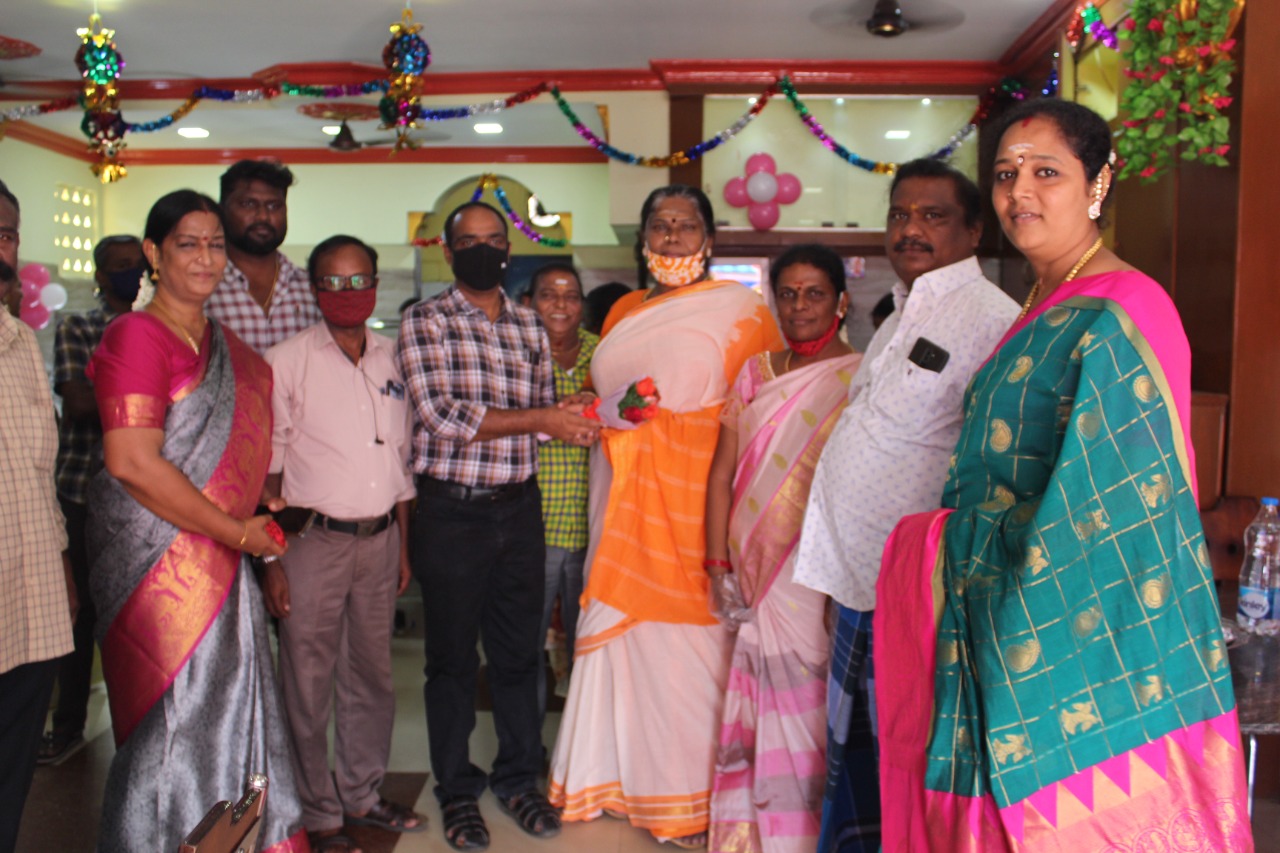Background
Transgender community members, often met with repudiation, are dependent on India’s vast informal sector to earn their living. Due to socio-cultural denial they generally end up in gig jobs including street side entertainment, prostitution and begging while struggling to find social affirmation. Covid-19 caused millions of job losses both in the formal and informal sector, further worsening the situation for vulnerable groups alike. An already isolated minority group, this transgender community in Madurai struggled to maintain their livelihood. As part of SELCO Foundation’s (SF) overarching goal to improve livelihoods which includes strengthening micro businesses and vulnerable communities , the solar powered interventions capably complements the livelihood generation. The interventions are designed to support the end user’s livelihood ecosystem. During the peak of COVID SF organized a food distribution drive for the frontline workers sourced from the transgender community, tying covid relief operations to livelihood sustainability. This is to enable a comprehensive livelihood ecosystem.
The Problem Statement
Ms. Jeyachitra, the transgender community group lead, was into catering business for the past 3 years, specializing in biryani and meals. Further plans to start a restaurant of their own were met with several challenges. Having struggled to find a spot to rent for their restaurant, Jeychitra lacked the resources to start their business. The impediments included lack of basic infrastructure including resources such as grinder-mixer, fridge and cooking-stove. Moreover, the grid system electricity is an expensive input cost to bear under the given circumstances. Further, the grid connection can be erratic interfering with crucial work hours. Therefore solar powered energy solutions to basic infrastructure can help eliminate irregularity with power connections. Solar powered solutions also reduce input costs in the long term as compared to grid. The micro business unit’s approach is conceptualized to create a decentralized ecosystem both in outcome and input - infrastructure requirements. It is to enable an enterprising business environment that creates employment opportunities locally. Therefore, in cases where there is no grid connection, solar power bridges that crucial gap or replaces grid connection alternatively to reduce input cost. The energy solution to an end user includes upgrading the resources with solar technology, enabling ownership/individual/group run enterprises and, creating channels for inclusive finance models. Selco Foundation sanctioned funds to procure the necessary resources. The interventions are listed below: Solar powering the wet grinder, DC fridges 150 Lt - 2 Nos, Mixy, Lights and Fan Efficient Cook Stove - Tea boiler & Tava
Impact
Alternative sustainable livelihoods to the transgenders’ and improved socio economic status Enhanced Income and good market linkages for their products Process for scaling these projects among these vulnerable communities across the country with different NGO Partners and Government A successful financial model to emerge from this intervention as part of the existing business models. An initial study of this enterprise indicates that they would be able to pay back their EMI in 2 years with an interest rate of 12% (commercial bank rate) saving grid electricity costs typically charged 3000 per month for similar businesses. Selco foundation supported funds and enabled access to procure solar powered machines to start the restaurant business. The foundation contributed 88% of the funds. The total project cost is INR 5,95,00. The intervention, thus far, has had beneficial impacts upon a team of 6 transgender group including positive impacts on 20 households. Since this intervention in September 2021, Selco Foundation has engaged 20 transgender community members directly and indirectly reaching 30 community members.
Learnings
The RMB unit’s approach is to create a decentralized livelihood ecosystem for not only small businesses but also create opportunities for marginalized communities otherwise absent. The focus is on efficiency, transparency, and use of case study from piloted evaluations (such as this) to inspire commitments from various stakeholders (public institutions, local ngo Swasthi in this case) helping us expand multifaceted livelihood program) to isolated minority groups. According to our initial analysis, an enterprise of this size would be able to pay back their EMI in 2 years with an interest rate of 12% with the energy costs offset alone and how it accords in loan repayments. This can help establish an evidence based successful pilot to showcase long term benefits for food enterprises alike. It highlights the sustainability of such programs based on cost - effective financial models. As a larger goal of the livelihood program, the organization hopes to engage in conversations leading to implementations about how to best uplift isolated minority groups such as this. We aim to understand the long term impact of a multifaceted livelihood intervention program to scale in the near future. Further, the Foundation plans to partner with organizations working with vulnerable local communities to scale livelihood interventions and help them transition out of isolation/poverty and enable basic needs to lead a dignified life.
